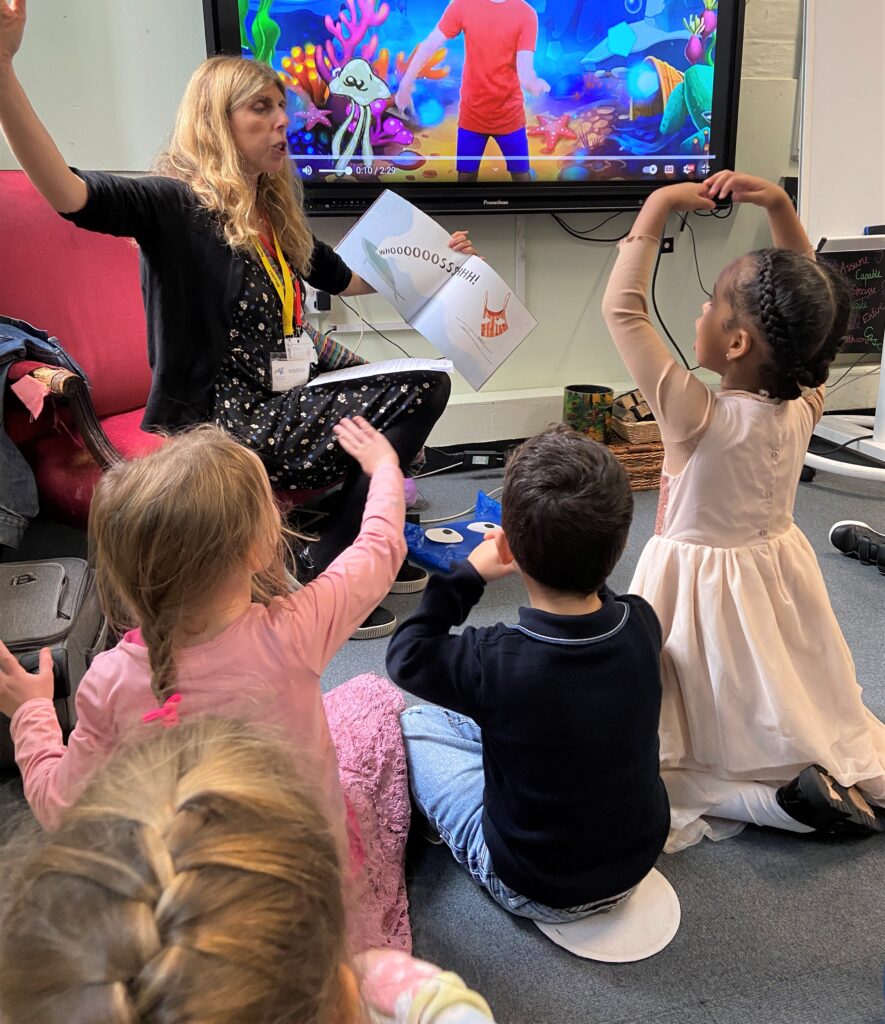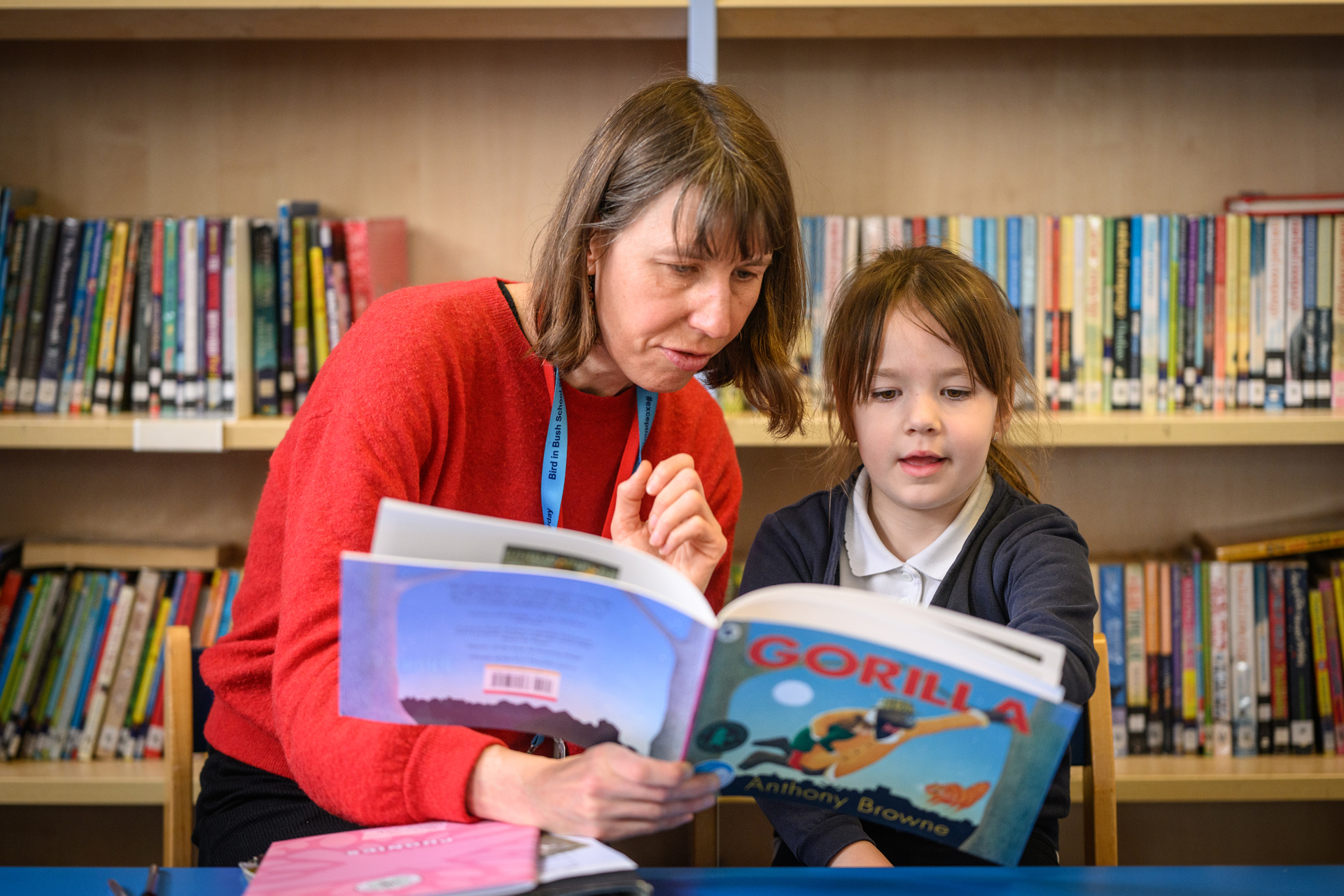“While there is often and rightly a focus on the mechanics of learning to read, talking is a vital part of literacy and the reading process.” In this blog, our Education Lead, Julie Taylor discusses why ‘book talk’ is so critical to the development of vocabulary, early comprehension and above all pure enjoyment of reading.
“Research has been published revealing that a fifth of our children are leaving school without passing English Language and Maths at GCSE. Of these students who were tracked from the age of three, just under half did not reach the expected levels of literacy and numeracy at the age of five. There must be some correlation here.
Children who are disadvantaged in those crucial early years are undoubtedly suffering the consequences as they hurtle through the education system towards public examinations. Other recent research from Speech and Language UK states that 1.7 million children are at risk of not being able to talk or understand. This alarming statistic adds to the deepening crisis around literacy and the development of talk not only in the Early Years but from birth.
Through our work in schools, we know that the development of literacy skills starts with talking about books.
While there is often and rightly a focus on the mechanics of learning to read, talking is a vital part of literacy and the reading process. Through our work in schools, we know that the development of literacy skills starts with talking about books, from board books for babies, to picture books, leading to more complex chapter books. But you cannot talk about a book if you don’t have access to one.
One in five children in England do not own a book of their own.
One in five children in England do not own a book of their own. Covid has undoubtedly compounded the problem but this sad statistic highlights the ever-growing chasm between advantage and disadvantage. If owning books is ‘integral to encouraging children to develop good reading habits and increasing literacy levels,’ as stated by Jonathan Douglas, Chief Executive of the National Literacy Trust, then as educators, we have a deepening crisis on our hands. Even for someone who has worked in Education for my entire career, I find it startling to learn that children who own a book of their own are six times more likely to read above their expected level for their age. As a charity, working with some of the most disadvantaged children, our fears lie with those children who are not accessing any reading materials at home.
As much as schools work hard to try to compensate for the lack of exposure to quality books in those formative years, it is a challenging task to overcome those lost years where children have lacked that immersion in all of the ‘book talk’ that is so critical to the development of vocabulary, early comprehension and above all pure enjoyment of reading.
In partnership with our schools, we are starting to run sessions for parents and carers all about how ‘Book Talk’ is fun and engaging for young children and provides every opportunity for developing those crucial language and communication skills. It provides an opportunity to use the language of prediction: What do you think this book is going to be about? What do you think will happen next? Children can talk about the pictures, explain what is happen in the story, retell the story themselves using the pictures, give their opinion about a book: who was your favourite character? What was your favourite part of the story? Both children and adults can act out the speech together, children can join in with rhymes and enjoy a valuable daily routine which will develop many of the building blocks to literacy.
School libraries have become a more important resource than ever yet one in four schools in disadvantaged area still do not have a library.
School libraries have become a more important resource than ever yet one in four schools in disadvantaged areas still do not have a library. Thanks to a campaign led by the author Cressida Cowell and Booktrust, “Life-changing libraries” funding has been secured to create six life-changing libraries and to support other schools to develop gold standard library provision. Studies have shown that vulnerable children benefit from library facilities the most and that reading for pleasure is more important for success than parents’ socio-economic status.
Learning how to enjoy a book really can help develop skills for life.
While our specialist tutors work hard to close the literacy gap for the most disadvantaged children, our schools tell us that of equal importance, or perhaps even greater value, is the way in which a child who begins to engage with reading and starts to enjoy books, becomes more confident and ultimately is more resilient. Learning how to enjoy a book really can help develop skills for life.”
As we know, reading takes many forms and the internet is overflowing with wonderful resources that parents can access for free to promote a love of reading. For more information about ‘Book Talk’ and websites providing free access to books, please follow the links below:
Storyline Online is an excellent resource with hundreds of stories to read aloud.
CBeebies Bedtime Stories for Kids
Learn English Kids (British Council)
Borrowbox is also a great way to access free audio books. You just need to be a member of a library.

Find out about our Literacy and Reading Labs in primary schools.

